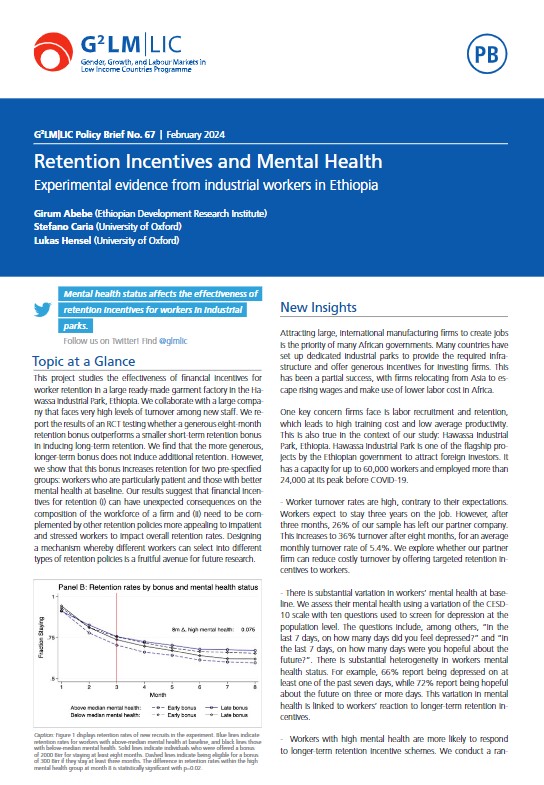This project studies the effectiveness of financial incentives for worker retention in a large ready-made garment factory in the Hawassa Industrial Park, Ethiopia. We collaborate with a large company that faces very high levels of turnover among new staff. We report the results of an RCT testing whether a generous eight-month retention bonus outperforms a smaller short-term retention bonus in inducing long-term retention. We find that the more generous, longer-term bonus does not induce additional retention. However, we show that this bonus increases retention for two pre-specified groups: workers who are particularly patient and those with better mental health at baseline. Our results suggest that financial incentives for retention (i) can have unexpected consequences on the composition of the workforce of a firm and (ii) need to be complemented by other retention policies more appealing to impatient and stressed workers to impact overall retention rates. Designing a mechanism whereby different workers can select into different types of retention policies is a fruitful avenue for future research.
